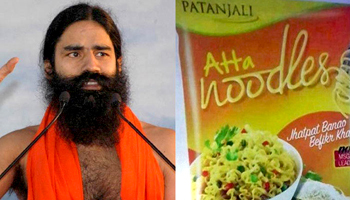Bengaluru, May 12: Former chief minister and senior Congress leader Siddaramaiah on Tuesday said that the Central and Karnataka government have failed in containing the coronavirus spread despite having enough time for preparations.
"Central and state government failed in properly controlling COVID-19. The first coronavirus case was reported in Kerala on January 30. Lockdown was imposed on March 24. Both Centre and state had enough time for preparations," Siddaramaiah said in a press meet here.
He said that the Central government did not stop the airline services on time.
"Karnataka government might have been able to stop COVID-19 properly. However, both the state and central government are playing politics over the issue and blaming Tablighi Jamaat for the spread, which is a political strategy painted by the RSS," Siddaramaiah said.
"Who gave the licence to Tablighi's international convention? Who gave them permission in Delhi? They didn't control it. Central government is directly responsible for the increasing numbers of COVID-19 cases in India," he added.
Siddaramaiah said that the lockdown was imposed without any preparation, which he said caused huge problems for the migrant workers across the country.
"Now, the government is collecting ticket fare and looting migrant workers. They don't have jobs or food, they don't have money, and they earn every day to survive. How will they pay for the tickets? Why the government is not arranging for free trains?" the Congress leader said.
He said that around Rs 35,000 crore have been credited to PM CARES fund, Rs 3,000 crore of which was credited from Karnataka alone. "Why are they not using that money?" he asked.
Siddaramaiah said that the party is demanding for the Centre to arrange for migrant workers to return to their native places across the country free of cost.
"We asked Chief Minister to call an all party meeting. We gave many suggestions, which this government did not consider. We also took a delegation and gave a memorandum about farmers, daily wage workers, road side vendors, barbers, problems faced by the unorganized sector. But this government didn't consider any of it," he said.
Questioning the Central government's suggestion to States to amend their Agricultural Produce Market Committee (APMC) Acts, Siddaramaiah said that the move is against the federal system of the country and claimed that it harms the interests of small scale farmers.
He said that the BJP-led state government has also decided to postpone the Gram panchayat elections in the state and is trying to nominate their party workers for village panchayat elections.
"The Government must continue with the present members of the Gram panchayat. If BJP tries to nominate their party members to village panchayats, we will take to streets to protest despite the lockdown," Siddaramaiah added.






Comments
how standard can make out from his own pic.
Below Standard products of below standard person , Wa Kya Bath Hey!
Ban all his products
UGLY MAN , UGLY PRODUCTS....!
he is a dirtiest person, how his product became a pure its logic. taurine person........
Guyz, just look at him. How do u expect quality standards from him?
Anyway good luck Sanghis, you are unclean anyway, now u can grow more unclean and unhealthy... Jai #MoNa
They are using cow urine in to it....substandard....
Low standard man will obviously have low standard products.
Add new comment